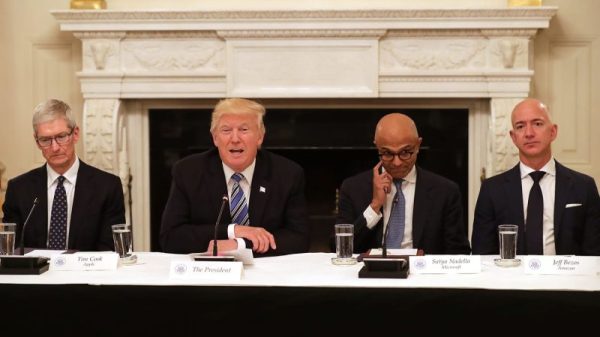Florida Governor DeSantis Calls for the Abolishment of ‘Corrupt’ IRS: A Push for Real Change
Introduction:
In a bold move that has sent shockwaves through the political landscape, Florida Governor Ron DeSantis has publicly expressed his support for a bill that aims to abolish the Internal Revenue Service (IRS). DeSantis argues that the current system is riddled with corruption and inefficiency, and calls for a complete overhaul to ensure a fair and transparent tax collection process. This unexpected stance has sparked a nationwide debate, with supporters applauding his courage and critics questioning the feasibility of such a drastic measure. In this article, we delve into the reasons behind DeSantis’ call for change and explore the potential implications of a world without the IRS.
A Corrupt System:
Governor DeSantis has long been a vocal critic of the IRS, citing numerous instances of corruption and misconduct within the agency. From targeting conservative groups for political reasons to mishandling taxpayer information, the IRS has faced its fair share of scandals over the years. DeSantis argues that these incidents are not isolated cases but rather indicative of a systemic problem that requires immediate attention.
The Need for Transparency:
One of the key issues raised by DeSantis is the lack of transparency in the current tax collection process. Many Americans feel that they have little control over how their hard-earned money is being utilized by the government. By abolishing the IRS, DeSantis believes that a more transparent and accountable system can be put in place, where taxpayers have a clearer understanding of where their money is going and how it is being spent.
A Fairer Tax System:
Another aspect that DeSantis emphasizes is the need for a fairer tax system. The current progressive tax structure has often been criticized for burdening the middle class while allowing the wealthy to exploit loopholes and avoid paying their fair share. DeSantis argues that by eliminating the IRS, a simpler and more equitable tax system can be implemented, ensuring that everyone pays their fair share without any room for manipulation or favoritism.
The Road Ahead:
While DeSantis’ call for the abolishment of the IRS has gained significant attention, many experts question the feasibility of such a drastic measure. The IRS plays a crucial role in collecting revenue for the government and ensuring compliance with tax laws. Without a centralized tax collection agency, the burden of tax enforcement would fall on individual states, potentially leading to a fragmented and inconsistent system.
However, DeSantis remains undeterred, suggesting that alternative solutions can be explored. One possibility is the adoption of a flat tax system, where everyone pays the same percentage of their income, regardless of their earnings. This would simplify the tax code and eliminate the need for complex calculations and deductions.
Conclusion:
Governor Ron DeSantis’ call for the abolishment of the IRS has ignited a national conversation about the need for real change in the tax collection process. While critics argue that such a move would be impractical and potentially detrimental to the economy, DeSantis believes that it is time for a complete overhaul of the system. Whether his vision becomes a reality or not, one thing is clear: the debate surrounding the IRS and its role in society is far from over.


























